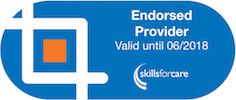Using body-worn cameras enhances transparency, accountability, and safety in various professional settings.

The Using Body Worn Cameras course is designed to provide comprehensive training on the operational, legal, and ethical use of Body Worn Cameras (BWC) in professional settings. It is particularly suited for individuals working in security, law enforcement, healthcare, and other fields where transparency, accountability, and safety are essential. The course focuses on ensuring participants can effectively use BWC technology while remaining compliant with data protection regulations, such as GDPR.
Throughout the course, participants will learn how to operate BWC equipment correctly, including when to activate or deactivate the camera during incidents such as threats, violence, or anti-social behaviour. The course emphasises the importance of using BWCs ethically and transparently, ensuring compliance with legal standards and organisational policies. Practical scenarios will help learners understand how to use BWCs in a variety of real-life situations.
A significant component of the course covers GDPR and data protection compliance. Participants will explore how to lawfully handle personal data captured by BWC, from collecting and storing footage to securely deleting it within the required retention period. The course also teaches best practices for managing recorded data, ensuring only authorised personnel have access and that footage is used appropriately.
In addition to learning how to operate the cameras, participants will gain knowledge on maintaining BWC equipment, including performing daily operational checks, troubleshooting common issues, and reporting malfunctioning devices. Proper equipment maintenance ensures reliability and readiness in any situation.
The course also covers post-incident procedures, teaching participants how to report recorded incidents effectively. This includes the steps for uploading and securing footage in line with company policies and data protection laws, as well as guidelines on handling sensitive information.
Hands-on exercises and role-playing activities are incorporated into the training to provide practical experience, allowing participants to build confidence in their ability to handle BWCs during real incidents. These exercises also help attendees practice decision-making, such as determining when to activate the camera and how to de-escalate situations while recording.
Upon completion of the course, participants will receive a ProTrainings certificate, including CPD accreditation, confirming their ability to use BWC technology effectively and in compliance with legal and ethical standards. This training is essential for professionals looking to enhance their ability to ensure safety and accountability in their roles, while adhering to strict data protection regulations.






